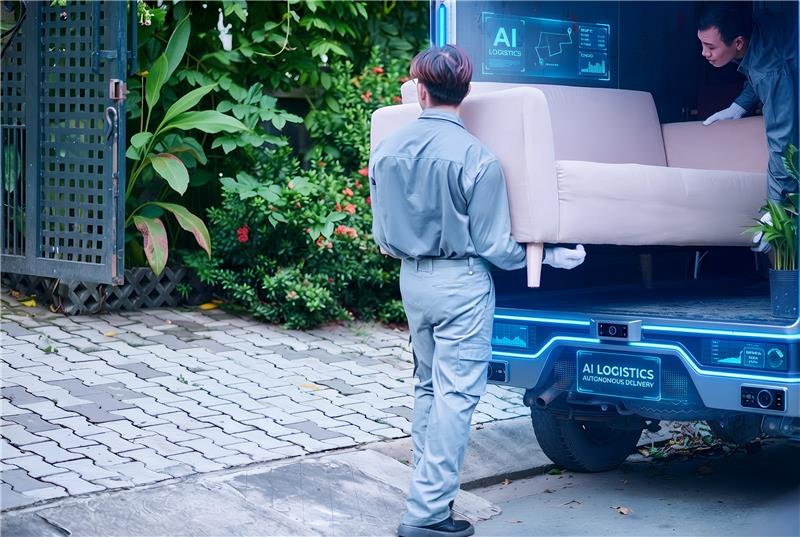
Empty miles, often called “deadhead miles,” create major challenges in logistics. These are miles when trucks travel without carrying cargo. As a result, costs rise since companies still pay for fuel, maintenance, and labor, but earn no revenue from these trips.
Furthermore, empty miles also increase carbon emissions, which harms the environment. Therefore, reducing these is essential for logistics companies.
Breaking Down the True Costs of Empty Miles
Empty miles create costs that are not always obvious at first glance. However, these costs add up quickly.
- Fuel and Maintenance Expenses: Empty trips waste fuel and add wear and tear to trucks. Over time, this severely reduces profits.
- Environmental Impact: Every empty mile adds to carbon emissions. This makes it much harder for companies to achieve sustainability goals.
- Wasted Driver Time: When trucks drive empty, driver productivity drops. As a result, this inefficiency increases costs for companies.
- Higher Freight Costs for Shippers: Inefficiencies from empty miles often lead to higher freight prices for shippers. Ultimately, this impacts supply chains and raises costs for consumers.
Clearly, reducing empty miles helps companies stay profitable while meeting environmental goals. However, achieving this reduction is challenging, especially since many companies still use manual freight management systems.

The Problems with Manual Freight Management
Unfortunately, many logistics companies rely on manual freight management. As a result, empty miles become harder to avoid. Manual methods often lack the speed and accuracy that today’s industry demands.
- Slow Response Times: Because manual management takes time, it’s difficult to match trucks with loads quickly. This often results in empty trips.
- Frequent Errors: Manual systems are more prone to errors. Small mistakes can cause trucks to arrive empty or leave without cargo.
- Limited Real-Time Data: Manual systems lack real-time tracking, which is crucial. Without real-time information, companies miss opportunities to adjust routes and reduce empty miles.
These issues show why manual freight management falls short. Reducing empty miles requires a faster and more accurate solution, especially one powered by technology.
Wahyd’s AI Enable Platform – The Gamechanger in Logistics
Wahyd Logistics has created a solution for the problem of empty miles. By using its (patent pending) AI-powered platform, Wahyd efficiently matches shippers with transporters. As a result, Wahyd reduces these miles, cuts costs, and boosts efficiency for logistics companies.
Here’s how Wahyd’s system addresses empty miles effectively:
- Route Planning Driven by AI: Wahyd’s AI carefully plans each journey. It evaluates routes and finds the best ways to connect shippers and trucks. Consequently, this reduces empty miles, ensuring every mile counts.
- Real-Time Order Verification: Wahyd’s AI verifies each order, including details like drop-off points and timing, before assigning it to a truck. Because of this, errors are minimized, and trucks are almost always loaded for their trips.
- Competitive Bidding for Cost Savings: After an order is verified, Wahyd’s platform sends it out to its network of vendors. Then, vendors place bids on the order, and shippers select the best option. This bidding process promotes transparency and saves money.
- Matching with Returning Vehicles: Wahyd’s system works to match orders with trucks returning from other trips. By using these returning vehicles, Wahyd minimizes empty miles, ensuring trucks carry cargo on each journey.
- Smart Screening through AI: Wahyd’s AI evaluates each bid and selects only the best options for shippers. This extra step ensures quality service, reliability, and cost savings for all involved.
Wahyd’s approach clearly shows how technology can solve long-standing logistics challenges. By reducing these deadhead miles, reducing logistics cost, Wahyd cuts costs, supports sustainability, and makes logistics more efficient.
Benefits
Reducing empty miles offers many advantages for logistics companies. When companies use AI-powered tools like Wahyd, they gain benefits across several areas:
- Lower Operating Costs: Fewer empty miles mean companies spend less on fuel, maintenance, and labor. Consequently, this improves profit margins.
- Greater Sustainability: With fewer empty miles, emissions are reduced. This helps companies meet eco-friendly targets and enhances their reputation in the market.
- Increased Driver Productivity: Optimized routes allow drivers to spend more time transporting goods, making their work more efficient and satisfying.
- Lower Freight Costs for Shippers: Reducing these deadhead miles also lowers freight costs, providing long-term savings for customers.
- Competitive Advantage: Companies that reduce empty miles have a stronger market position. Today, many shippers seek eco-friendly partners, so these companies become more competitive.
Why Technology is Essential for Modern Logistics
Currently, many logistics companies rely on outdated, manual systems. However, as the industry grows, these older methods often fail to keep up. They lead to delays, mistakes, and missed opportunities to cut costs.
In contrast, digital platforms, AI, and real-time data empower companies to make smarter, faster decisions. By adopting technology, companies remain competitive, lower costs, and boost overall efficiency.
Looking Forward: The Need to Reduce Empty Miles
As demand for fast, reliable logistics grows, reducing inefficiencies becomes crucial. Empty miles represent lost profit, wasted resources, and higher emissions. Focusing on reducing these deadhead miles allows logistics companies to meet their sustainability goals and improve their profits.
How Wahyd is Leading the Way in Reducing Empty Miles
The hidden costs of empty miles are too large to ignore. The logistics industry is at a turning point where technology can solve many of these challenges. Utilizing the power of AI-driven logistics automation, Wahyd platform helps in optimizing routes, verifying order details, and reducing these deadhead miles through smart matching.
For companies ready to make a change, Wahyd offers tools that increase profits, support sustainability, and boost competitiveness. By reducing empty miles, Wahyd and similar technologies create a more efficient, eco-friendly future for logistics.






